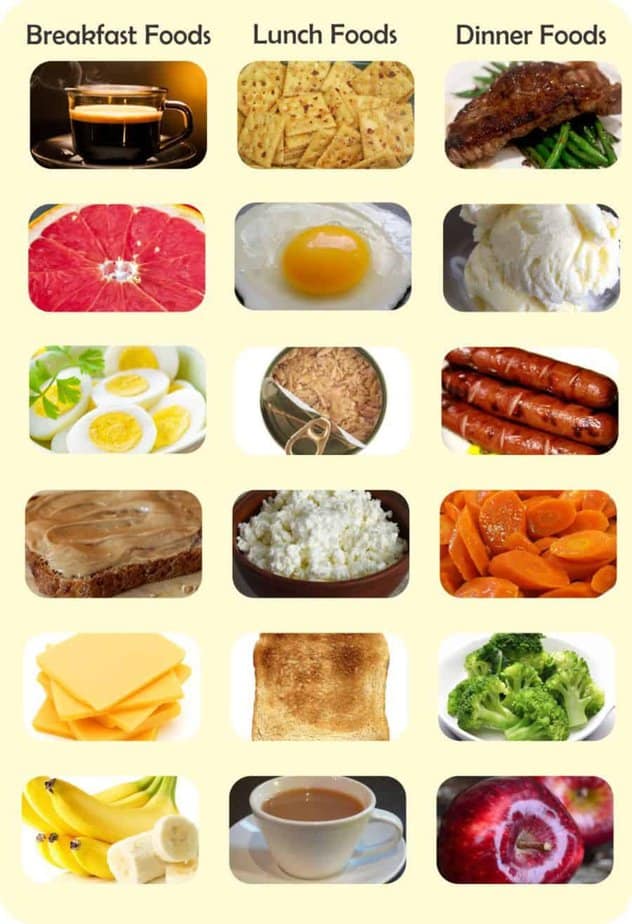The military diet is a fad diet that is in no way associated with the military. Social media is abuzz with this 3-day diet plan which promises to make you lose weight up to 10 pounds (4.2 kg) per week.
This diet is expected to influence your metabolism by strictly having very-low-calorie diets for three days in every week. For three days it has a set of low-calorie menus followed by 4 days of unrestricted eating. It’s an inexpensive diet program that includes no supplements or monthly subscription fees to be paid to a weight loss coach. Sounds easy and simple right?
Like every other weight loss program out there, you are sure to experience a short-term weight loss result. Honestly, it’s tough to follow something very restrictive for the long term and results are unlikely to be sustainable in the long run.
This article brings home to you all the important elements of the military diet, including the meal plan.
What Is The Military Diet?
The military diet, also called the 3-day diet, is a short-term, rapid weight loss diet plan. Its biggest attraction is the possibility of losing up to 10 pounds in just a week. The diet revolves around a well-charted-out 3-day, calorie-restricted meal plan followed by 4 days off. Those who follow this diet will have to repeat the weekly cycle for up to a month minimum or until they reach their desired level of weight.
Many experts consider it to be something similar to intermittent fasting because it follows an on-and-off calorie restriction. In fact, intermittent fasting involves shifting between periods of low-calorie intake and periods of unrestricted feeding.
Basically, the 3-day diet plan asks you to have calorie restrictions for 3 days in a week and eat anything you want during your days off. To maintain the weight loss results, continue with the diet plan as long as you can.
How Is It Done?
The 3-day military diet has two phases for every week. It involves a well-planned meal plan for breakfast, lunch, and dinner for the first 3 days, and snacks are strictly avoided between meals.
The most important aspect of 3-day meal plan is the restricted calorie intake which comes out to about 1,100-1,400 calories per day. For some, the dietary pattern can be as low as 800-1,200 calories per day. This is far below the United States Dietary Guidelines’ recommended calorie intake for adults – a minimum of 2,200 for men and 1,600 for women.
In its second phase, you’re recommended to follow a well-balanced diet for the remaining four days of the week. In the second phase, it does provide a less restrictive, 1,500-calorie diet plan for optimum weight loss results.
To be on the wiser side, you should not venture into low calories diet recommended by the 3-day military diet without a medical professional’s recommendation or guidance. Your safety and adequate nutrient intake must be your first priority.
The Military Diet Meal Plan
The diet plan consists of a limited selection of foods, only sixteen to be precise. Again, these 16 recommended foods are divided between breakfast, lunch, and dinner. Here are the suggested items in the meal plan:
BREAKFAST
- peanut butter
- toast or saltine crackers
- hard-boiled eggs or cheddar cheese
- grapefruit, apples, or bananas
LUNCH
- canned tuna, hard-boiled eggs, or cottage cheese
- toast or saltine crackers
DINNER
- green beans, carrots, or broccoli
- apples or bananas
- any type of meat, canned tuna, or hot dogs without a bun,
- vanilla-flavored ice cream
Overall, you have just a few varieties of foods in the 3-day meal plan.
In addition, there is a day-by-day decrease in the amounts of these 16 foods recommended. The first day’s diet has about 1,400 calories, about 1,250 calories on the second day, and falls to roughly 1,100 calories on the third day.
As for the recommended drinks, water or herbal teas is the best option. Also, the menu allows caffeinated coffee or tea twice per day without sweeteners or creamers.

SECOND PHASE – 4 DAYS
The diet plan does not give any compulsory rules for the remaining four days of the week but simply suggests you follow a well-balanced diet plan.
However, for those who wish to have maximum weight loss outcomes are provided with a 1,500-calorie menu. You may have snacks between meals but limit your portion sizes.
Note that even a meal plan with 1.500 calories per day is still very low for people with higher energy needs per day. If you are involved in a lot of manual labor, sporting activities, or strenuous work, you need a lot more calories to keep up with your performance.
Other Permitted Or Rejected Foods
The military diet allows substitutions for menus during the 3-day phase but the substitute foods should match the calorie count. These substitutions are meant for people with dietary restrictions.
For some, a few of the recommended foods like peanut butter may cause allergic reactions. The substitution list also includes options for those interested in gluten-free, vegetarian, lactose-free, or vegan adaptations of the diet.
The proponents of the military diet advocate you avoid artificially sweetened beverages to prevent weight gain. But from the point of view of the evidence, still, there isn’t much clarity on these drinks’ effect on body weight.
According to the recommendation, some of the usual substitutes like orange for grapefruit must be avoided. Instead, you may replace the grapefruit with a glass of water with ½ teaspoon of baking soda, which is expected to alkalize your body and reduce body fat. However, there isn’t any scientific evidence supporting the efficacy of baking soda to reduce body fat.
Contrary to the desired effects, food research scientists say that some foods in the 3-day diet increase your body’s acid load; your body is compelled to excrete the excess acid through urine. Therefore, any diet plan can hardly have any impact on your body’s alkalinity or acidity levels.
Some also argue that a few of the permitted foods in the diet like animal-based foods can lead to an increase in your body’s acid load, thus, some of the recommendations are contradictory to the purported intent.
In short, you can notice several contradictions in the recommended list of foods usable and avoidable in the military diet plan.
Read next: Can low-carb diet plans help you to lose weight?
